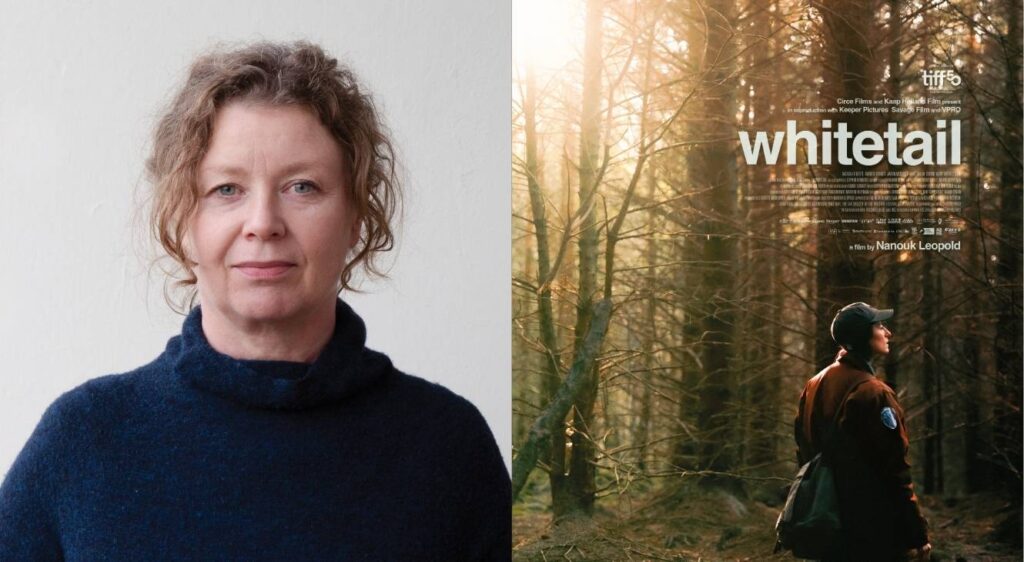TIFF 2025: Nanouk Leopold's Nature-Driven 'Whitetail'

A Deep Dive into the Emotional Landscape of Whitetail
In Nanouk Leopold’s latest film, Whitetail, audiences are introduced to Jen (Natasha O’Keeffe), a forest ranger who balances her professional responsibilities in managing and maintaining the local Irish woods with the emotional burden of caring for her ailing father, Daniel (Andrew Bennett). The story takes a dramatic turn when Jen learns that her ex-boyfriend, Oscar (Aaron McCusker), is returning home. This revelation triggers a flood of unresolved trauma tied to the tragic death of her sister. As if this weren’t enough, Jen must also confront a growing poaching problem in the area, adding another layer of complexity to her already overwhelming life.
Whitetail explores the multifaceted nature of trauma, illustrating how Jen cycles through a range of emotions and coping mechanisms as she tries to avoid facing what she keeps running from. The journey is neither quick nor easy, highlighting the often-unpleasant process of reconciling with past pain.
The film is not only a character-driven narrative but also a symbolic exploration of trauma, with Natasha O’Keeffe delivering a compelling performance as the emotionally turbulent Jen. Her portrayal brings depth and authenticity to the role, making it impossible to look away.
The Origins of Inspiration
When asked about the initial spark for Whitetail, Leopold described it as an image — a woman in the woods, deeply connected to her environment. She emphasized that while the image was clear, the story took time to develop. “Stories come and then they tend to take you away in a certain direction,” she explained. “Sometimes we would leave the woods, and I was like, no, no, no, no, no, I want to go back into the woods. She has to stay there.”
Leopold shared that the idea originally centered around a man in the woods, but a suggestion to make it a woman led to a significant shift in the narrative. “It was so long ago,” she said, reflecting on the evolution of the project. “I don’t even know why I started with a man. It just happened.”
Nature as a Symbolic Force
The natural environment plays a crucial role in shaping both the story and the characters in Whitetail. For O’Keeffe, the forests were more than just a backdrop — they were integral to her performance. “We had night shoots in the woods, and how different and almost scary and heightened it all feels at night,” she recalled. “But then there’s the regeneration and the landscapes that feed Jen when she needs it, or keep her busy when she doesn’t want to face the thing that is right in front of her.”
Leopold echoed this sentiment, describing the various types of forests they explored during filming. From the dead wood, which evokes fear, to the dark wood with ancient trees, each location carried its own emotional weight. “We have all these different parts,” she said. “With Frank [van den Eeden], the cameraman, we were visiting these places, and thinking, this should be for this scene, and this should be for that scene.”
One particular location stood out: the dark wood, where the energy felt different and almost oppressive. “It’s a scary forest,” O’Keeffe added. “And I think it does something in the film. I think it really responds to that.”
Performance and Internal Work
O’Keeffe spoke about the internal work required to portray Jen effectively. “With the shooting of film, it’s so rare for it to be in any successive order,” she said. “On the job, it felt weird saying it was a job. It didn’t feel like a job. It felt like some artistic flow.” However, she acknowledged the need for preparation, including knowing her beats and understanding the emotional arc of the character.
She also highlighted the importance of small details, such as the necklace Jen wears, which symbolizes her connection to her sister. “It’s a hidden secret in Whitetail,” she noted. “You don’t have to notice it, but it’s there.”
Trauma and Rebirth
Leopold drew a parallel between the process of healing from trauma and the natural cycle of rebirth. “What she’s actually doing with her work, with the regeneration of the oak trees, and getting out the seeds of the forest and making them grow in her greenery, and then putting them back in a sort of enclosure, a safe place in the woods,” she explained. “It’s sort of the same sort of regeneration, rebirthing. That’s what nature does to help with the trauma.”
O’Keeffe agreed, noting that Jen is a woman with strong boundaries. “There’s so much physical versus what’s internally happening,” she said. “It’s a lot of internal work.”
A Film That Resonates
Whitetail made its world premiere at the 2025 Toronto International Film Festival, offering audiences a powerful and emotionally rich experience. The film continues to explore themes of trauma, resilience, and the healing power of nature, leaving a lasting impression on those who watch it.
Post a Comment